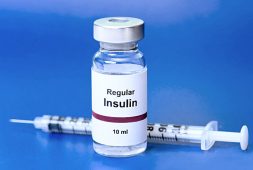Test Proves Successful In Detecting 18 Early-Stage Cancer Signals By 84% In First Human Trial

Emerging from the realm of medical innovation, an experimental cancer test heralds a potential paradigm shift in early detection methodologies.
Unlike conventional approaches that scrutinize tumor DNA, this groundbreaking technique delves into the realm of blood proteins, offering a promising avenue for identifying a spectrum of up to 18 early-stage cancers with unparalleled precision.
The realm of cancer diamonds has long been characterized by a disparate array of detection methods. A unified testing option capable of encompassing a myriad of cancer types could potentially serve as a transformative boon, sparing countless lives from the ravages of this insidious disease.
Pioneered by Novelna, a US-based biotech firm, this novel approach recently underwent rigorous scrutiny through a trial involving 440 human subjects afflicted with a diverse array of 18 distinct cancers. Blood plasma samples from each participant, alongside specimens from 44 healthy blood donors, formed the basis of this pioneering investigation.
Through the analysis of minute blood proteins, the Novelna team attained a notable level of “sensitivity,” signifying the detection rate of early-stage tumors, and a significant level of “specificity,” which pertains to controlling false-positives. Additionally, the test targets sex-specific proteins for enhanced accuracy.
In the crucible stage of I cancer – the earliest detectable phase – where precision is paramount, the test exhibited remarkable prowess. With a specificity of 99%, the panels demonstrated an impressive ability to discern 93% of cancers among male subjects and 84% among their female counterparts.
“This finding is the foundation for a multi-cancer screening test for the early detection of 18 solid tumors that cover all major human organs of origin for such cancers at the earliest stage of their development with high accuracy,” the authors wrote in the journal BMJ Oncology.
“These findings pave the way for a cost-effective, highly accurate, multi-cancer screening test that can be implemented on a population-wide scale.”
While acknowledging the limited size of the trial and recognizing the necessity for larger trials to validate the established accuracy, the team emphasized a crucial finding: nearly all proteins associated with various cancers were detected in blood samples at notably low concentrations, highlighted the significance of these tests in identifying tumors before their inception.
Dr. Mangesh Thorat, of the Centre for Cancer Prevention at the Wolfson Institute of Preventive Medicine, told the Guardian, “If the assay performance in future, well-designed sequential studies is anywhere close to what this preliminary study suggests, then it could really be a gamechanger.”
Notably, Dr. Thorat was not involved in the study.
Dr. Peter Attia, a prominent figure in the medical community renowned for his advocacy of preventive medicine, recently emphasized the pivotal role of early detection in curbing mortality rates associated with prevalent cancers such as breast, colon, and prostate cancer.
Propounding the ethos of “medicine 3.0,” which accentuates prevention over treatment, Dr. Attia advocates for a paradigm shift towards comprehensive testing regimens commencing in mid-life and recurring biannually.
Certainly, the survival rate for women who detect breast cancer in its initial stages ranks in the ninetieth percentile, contrasting sharply with the dismal prognosis for those diagnosed at stage 4.
Comprehensive tests targeting various cancers in their early stages could streamline global testing protocols, particularly in a world where cancer accounts for one-sixth of all deaths.



